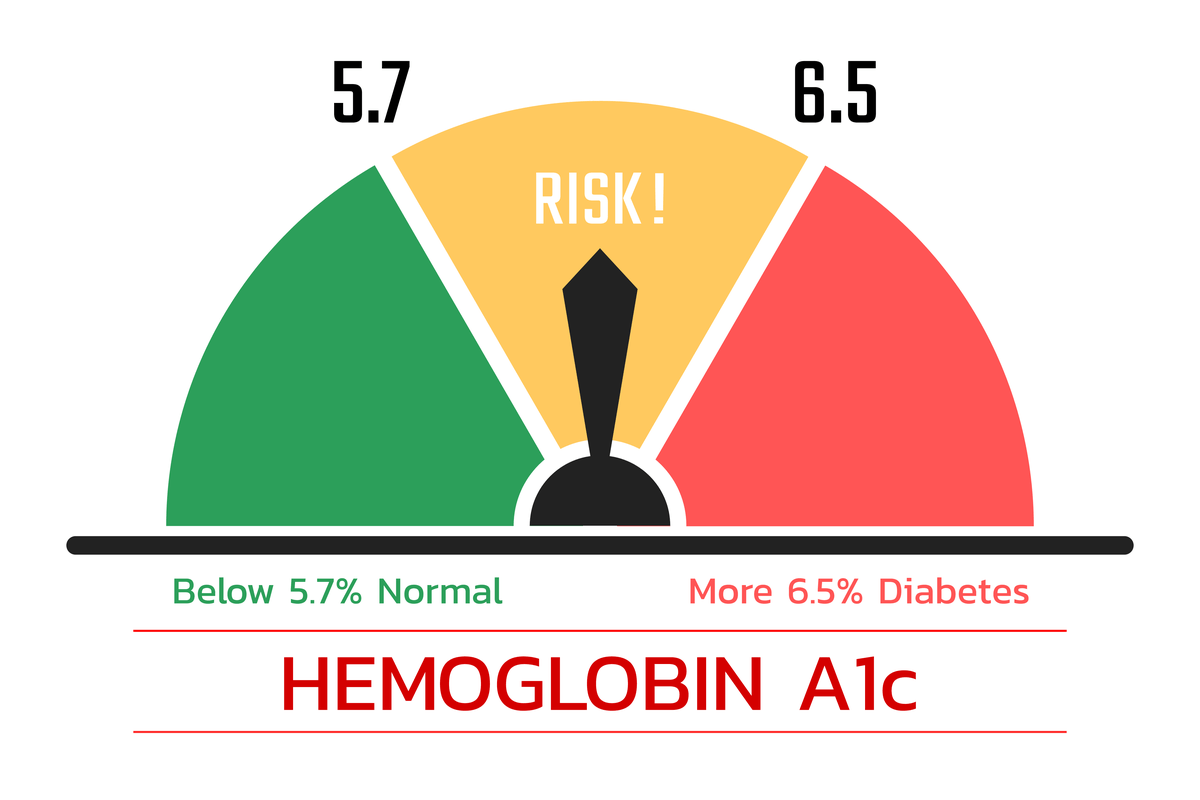Last updated on September 1st, 2022Poor lifestyle and eating habits can lead to the risk of developing diabetes or pre-diabetes. If not taken care of, diabetes can lead to several health complications like cardiovascular disease, kidney damage, stress, depression and makes your life worse. Therefore, you should keep a check on your blood sugar levels. On …
Last updated on April 12th, 2024The amount of glucose (“sugar” expressed in mg/dL) present in the blood fluctuates during the day and at night. Our body maintains a level of blood glucose for metabolism. According to the American Diabetes Association, the normal sugar level in a healthy body is less than 100 mg/dL. However, these blood …
Last updated on November 3rd, 2023What Is HbA1c? HbA1c full form is hemoglobin A1c or glycosylated hemoglobin. It is a form of hemoglobin that contains sugar. Hemoglobin is a kind of molecule that is present in red blood cells and helps in carrying oxygen to the body’s tissue. Read this blog to know what the hba1c …
Diabetes can significantly slow down wound healing, making even minor cuts and sores a serious concern. High blood sugar levels impair blood circulation, immune response, and nerve function, all of which are crucial for effective healing. Understanding why wounds take longer to heal in diabetics is essential to prevent complications and improve recovery. This article explores …
Diabetes symptoms in men can include increased thirst, frequent urination, fatigue, and blurred vision. Other signs might be slow-healing wounds, unexplained weight loss, and recurrent infections. In some cases, men may also experience erectile dysfunction and decreased muscle strength due to the impact of high blood sugar levels on blood flow and nerves.
Common diabetes symptoms in women include increased thirst, frequent urination, fatigue, unexplained weight loss, blurred vision, and slow-healing wounds. Specific signs may also include yeast infections, urinary tract infections (UTIs), and polycystic ovary syndrome (PCOS)-related symptoms. These symptoms can signal high blood sugar levels and should prompt medical attention for diagnosis and management.
Managing diabetes requires a careful balance of nutrition, and incorporating the right foods can make a big difference. Seeds, packed with fiber, healthy fats, and essential nutrients, are a powerful addition to any diabetic diet. They help regulate blood sugar, enhance heart health, and support your overall well-being. This blog will explore which seeds are good …
Winter is a season that brings unique challenges for managing diabetes. The cold weather not only increases the body’s resistance to insulin but also heightens the risk of illness and certain diabetes-related complications. For those with diabetes, winter’s low temperatures can slow down circulation, lead to dry skin, and trigger fluctuations in blood sugar levels due …


 English
English
 العربية
العربية 














